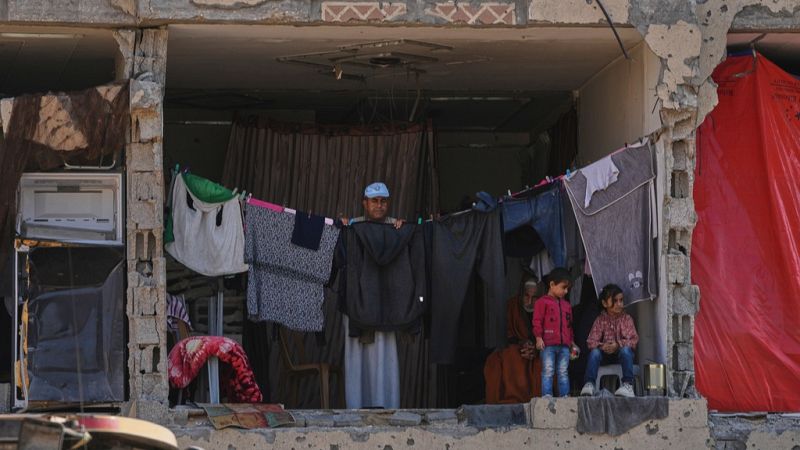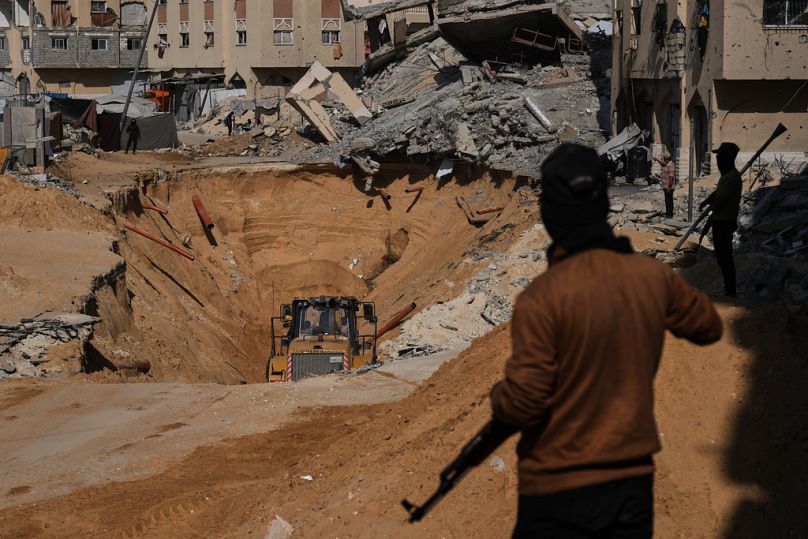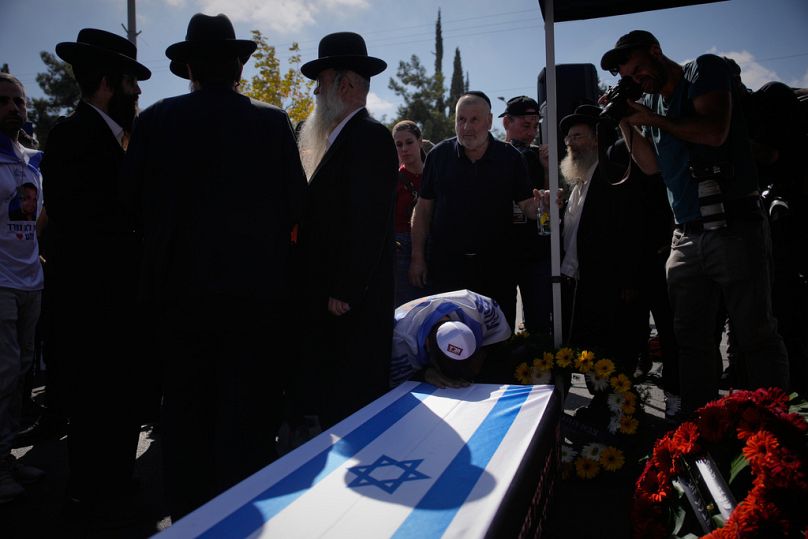Israel says it will return to ceasefire after carrying out attacks on Gaza's southern city of Rafah

The Israeli Defence Forces say they have "begun renewed enforcement" of the ceasefire in Gaza, hours after conducting deadly airstrikes in the southern city of Rafah.
The IDF said it acted in defence and was responding to an attack levelled against its forces stationed there.
In a post on X, the Israeli army said “terrorists fired an anti-tank missile and gunfire toward IDF troops operating to dismantle terrorist infrastructure in the Rafah area, in southern Gaza, in accordance with the ceasefire agreement.”
“In response, the IDF has begun striking in the area to eliminate the threat and dismantle tunnel shafts and military structures used for terrorist activity.”
“These terrorist actions constitute a blatant violation of the ceasefire agreement, and the IDF will respond firmly,” the IDF added.
The attacks reportedly killed at least 33 people and come as Israel continued to feud with Hamas over alleged violations of the fragile US-brokered ceasefire, which came into effect last week, aiming to end the war.
Later on Sunday, an Israeli security official also announced that the transfer of aid into Gaza was halted "until further notice", but the decision was reversed within an hour amid American pressure, according to Israeli media.
Earlier, Israeli media noted that Prime Minister Benjamin Netanyahu left a cabinet meeting he was chairing to hold security consultations about the Rafah skirmishes.
Hamas said communication with its remaining units in Rafah had been cut off for months and "we are not responsible for any incidents occurring in those areas." The militant group has actively accused Israel of violating the ceasefire close to 50 times since it came into force.
The Gaza-based group says Israel has killed dozens of Palestinians, via direct open-fire against civilians, sponsoring armed insurgents to orchestrate killings and unrest and through continued acts of intimidation and aggression against civilians.
“These violations have included crimes of direct gunfire against civilians, deliberate shelling and targeting, and the arrest of a number of civilians, reflecting the occupation’s continued policy of aggression despite the declared end of the war,” said Hamas in a statement earlier this week.
Hamas also accused Israel of violating a major term in the ceasefire agreement brokered by US President Donald Trump, which stipulated that all land crossings into Gaza, including the main one – Rafah – are to be opened to enable large-scale aid operations.
The deal also stipulated that aid is to flow into the enclave at pre-war levels of 600 trucks a day. It has since been limited by the Israeli defence body overseeing the aid operations, COGAT, to half that, at 300 trucks daily.
Netanyahu on Saturday announced that the Rafah border will remain shut, and aid will continue to be limited, instead accusing Hamas of not living up to its end of the bargain.
Both parties agreed in the deal to exchange prisoners and hostages in the first phase of Trump’s plan.
Hamas held 20 living hostages and the remains of 28 deceased hostages, which it was required to return to Israel earlier this week on Monday.
The group has so far returned all 20 living hostages and 12 of the 28 dead hostages. Netanyahu says Israel will not tolerate a breach of this clause of the agreement, and has threatened to resume fighting “until the very last hostage is returned”.
Hamas says it is unable to retrieve the remaining hostages as their bodies are trapped underneath heavy rubble.
The group has requested heavy excavation equipment to remove the rubble and retrieve them, but Israel has not provided or allowed such machinery to enter Gaza.
Today



